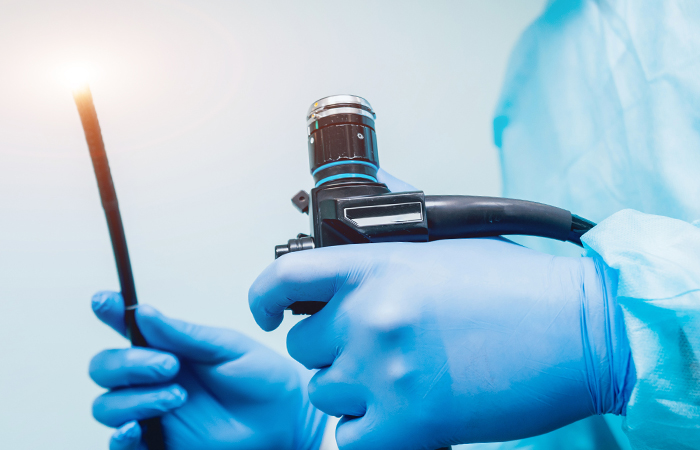Colon/Rectal Cancer
Colorectal cancer (cancer of the colon or rectum), when discovered early, is highly treatable. Even if it spreads into nearby lymph nodes, surgical treatment followed by chemotherapy is highly effective.

Advanced treatment and personalized support, close to home.
Colorectal cancer is cancer that starts in the colon or rectum. When found early, it is often highly treatable. Even when it has spread to the liver, lungs, or other areas, treatments such as chemotherapy can sometimes shrink the cancer enough to make surgery possible. These treatments can also help you live longer and improve your quality of life.
At HSHS St. Vincent Hospital Cancer Centers, we combine advanced treatments with compassionate care to give you the best possible outcome, no matter the stage of your cancer.
Risk Factors
The exact cause of colorectal cancer isn’t always known, but certain things can raise your risk:
- Age over 50 (about 90% of cases occur in this group).
- You are of African American race.
- A personal history of colorectal cancer or colon polyps.
- Long-term inflammatory diseases of the colon, such as ulcerative colitis or Crohn’s disease.
- Inherited syndromes, such as familial adenomatous polyposis or Lynch syndrome.
- Family history of colon cancer or colon polyps.
- Low-fiber, high-fat diet.
- Lack of regular exercise.
- Diabetes.
- Being overweight.
- Smoking.
- Heavy alcohol use.
If you have one or more of these risk factors, talk to your doctor about ways to lower your risk and whether you should be screened sooner.
More About Colon/Rectal Cancer
- A change in bowel habits (diarrhea, constipation, or narrowing of the stool).
- Blood in the stool.
- Ongoing belly discomfort (cramps, gas, or pain).
- Unexplained weight loss.
- Weakness or fatigue.
If your doctor suspects colorectal cancer, they may order:
- Colonoscopy or sigmoidoscopy.
- Imaging scans (CT, MRI, or PET).
- Lab tests, including biopsy of any suspicious tissue.
- Surgery – to remove the cancer and nearby lymph nodes.
- Radiation therapy – to target and destroy cancer cells.
- Chemotherapy – to kill cancer cells or shrink tumors before surgery.
- Targeted therapy – drugs that attack specific cancer cell changes.
- Immunotherapy – helps your body’s immune system fight cancer.
- Clinical trials – access to promising new treatments not widely available.
- Medical oncologists
- Radiation oncologists
- Surgeons
- Pathologists
- Radiologists
- Oncology nurses
- Social workers
- Nutritionists
- Other specialists as needed
We’re Here to Help
From your first visit through treatment and follow-up care, we’ll be with you every step of the way.
Talk to your primary care provider to learn more about colorectal cancer screening, diagnosis, and treatment at HSHS St. Vincent Hospital Cancer Centers.